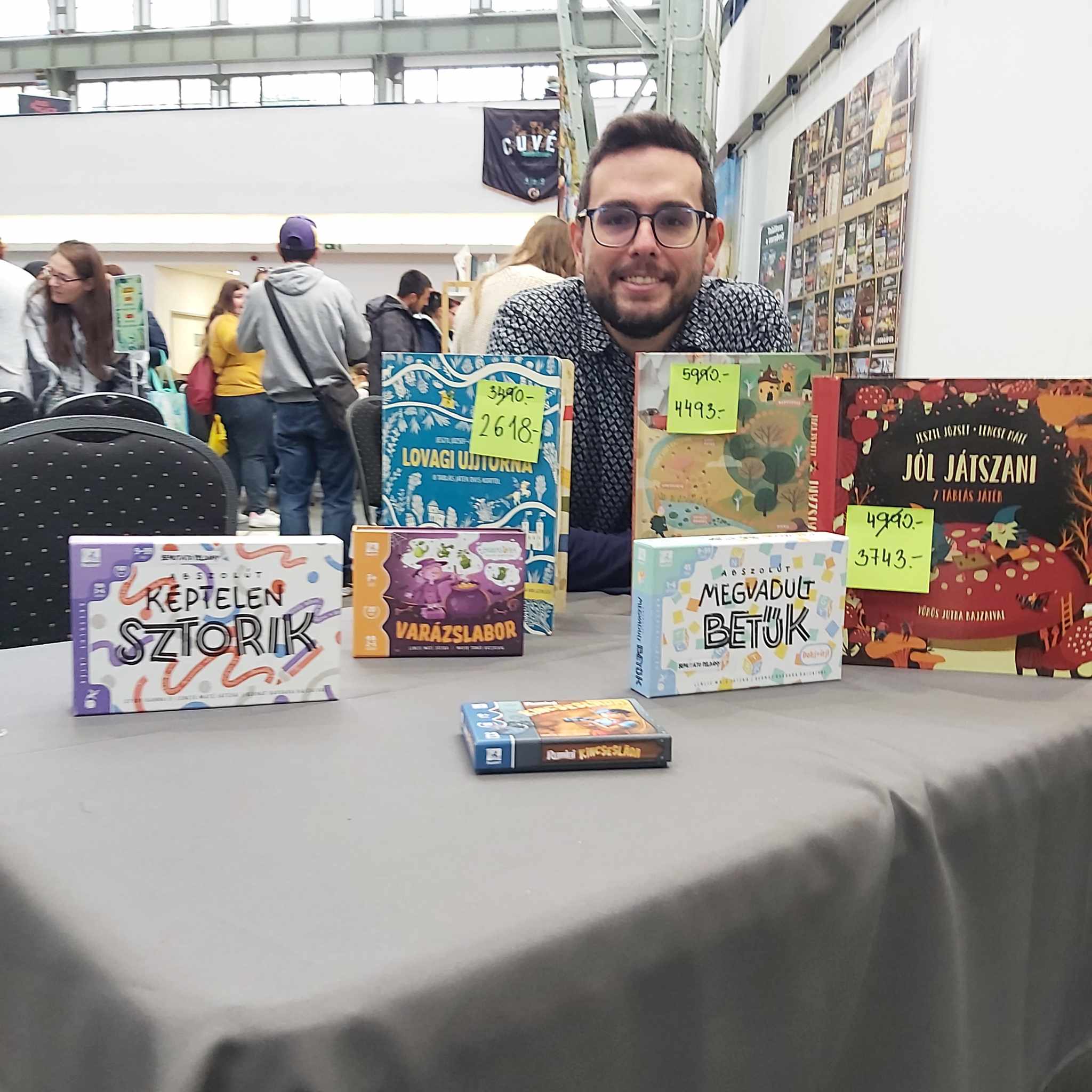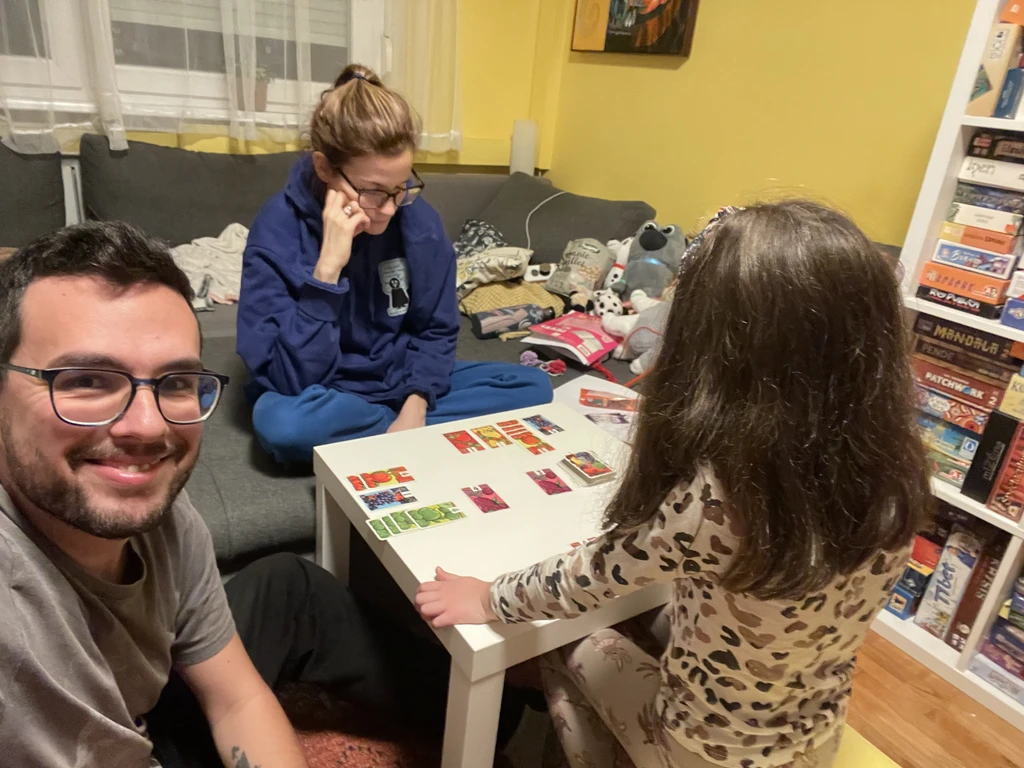The Quality of Presence Matters
Playing board games is best when we truly play together. That means not just sitting side by side without paying attention. As parents and educators, it's not difficult to perceive playing games together as an essential task. We know it's necessary because it's beneficial and developmental. However, this is only true when we can speak of a quality game session. If we sit down to play a board game with our child, but meanwhile check our emails on our phone, then I don't believe we're making any progress; it might be more honest and better to just turn on the TV to a good cartoon.
During teacher training, I've heard some say they don't like to play board games, but see that it's popular now, so despite their lack of enthusiasm, they will join a game or two. Well, maybe they shouldn't.
The educational benefits of board games are not a panacea; they're not suitable for everything. But playing with bored, grumbling adults who aren't paying attention isn't beneficial for children at all. Shared board gaming works when we can create a gaming situation where everyone is happy to be present.
For this, many rules are needed, which can also frame our lives – e.g., I might take a few photos during our play, but I shouldn't be online all the time when I'm with the child. In our "Board Game Pedagogy" book, we've already written about such things in the "Playful Codex" chapter, but now I'd like to address something slightly different.
What Fosters Our Presence?
I think what helps the most is genuinely enjoying the activity. If we, as parents or educators, believe that this is a useful activity for the child and push ourselves into it, then at best we can produce a mediocre, sweat-filled experience. We aren't maximizing the potential. In pedagogy – institutional or at home, it doesn't matter – we often underestimate our well-being. In experience-based activities tied to motivation, like board gaming, there's a vast difference between a bored adult and a fully present one. And achieving the latter is not primarily about being conscious and continually telling ourselves it's our job. We should find what we truly love doing, or at least consider this perspective.
Great Children's Board Games Exist
There are great children's board games. It's not just about simple throw-move games or memory games. Let's forget the idea that playing children's board games has to be a painful obligation. I'm personally fascinated by Wolfgang Warsch's works, but his two adapted classics are so excellent that I'm happy to play them anytime:
And of course, I hope I don't just produce bad children's games.
Creating Equal Opportunities for Presence
So, we should be more conscious about what we surround ourselves with. When we talk about advantages and equal opportunities, our goal is to promote those game sessions where everyone can be equally present. Because it can be truly enjoyable.
We don't always have to fulfill a child's request. And we shouldn't overthink and force what we want. At home, as well as with groups of children, I work well with game packs. Everyone can pick from the pack; everyone can be involved in planning the next half-hour, hour, or two-hour program. I like to play games that others enjoy if, afterward, they play games that I like. And if I enjoy playing, I can demonstrate a part of myself that gives meaning to board game pedagogy.

If I enjoy playing, I can demonstrate a part of myself that gives meaning to board game pedagogy. The difference between a bored adult and a fully present one is vast – and it's this presence that transforms a simple game into a powerful educational and bonding experience.
A Personal Example
Fruit Mix with my family – these are the moments where true presence creates lasting memories and genuine learning experiences.

